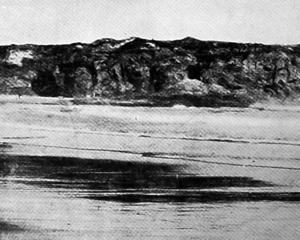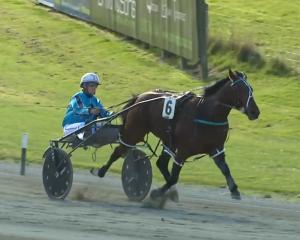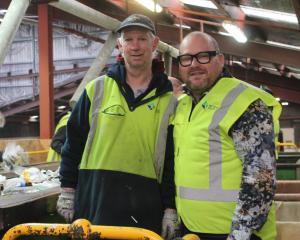

At least six long-standing or returning southern events have failed to make it to the start line this year, or signalled they will not resume until 2026, mirroring several large-scale music events elsewhere in the country.
They include multisport-style events The Goldrush (Clyde), The Prospector (Alexandra), The Wild (Queenstown), the Lake Dunstan Triathlon and the Bannockburn Gutbuster; and family/community events The Hawea picnic races and Luma (Queenstown).
Organisers of the Bay Dreams Festival in Tauranga and Queenstown, which attracted 50,000 attendees at its peak, cancelled next year’s event citing the rising risk in booking high-cost headliners to perform.
Fellow festivals Splore, the Nest Fest and Morningside Block Party are also off for 2025.
Questions were also raised about the viability of Central Otago multisport showpiece Challenge Wanaka in November this year, after it recorded a loss of more than $150,000 for the first time. It has remained on the calendar and will be raced in mid-February.
Highland Events director Terry Davis, who organises several major multisport and other events in Central Otago, including Southern Series mountainbike race the Bannockburn Gutbuster, said changing sporting tastes, bureaucracy and economics were likely culprits for many of the cancellations.
He blamed the rise of e-bikes for putting an end to the Gutbuster two years ago.
‘‘I absolutely believe mountainbike races are dying due to e-bikes. You hear even capable, fit cyclists say, ‘I’ll keep my regular bike even though I’m buying an e-bike’, but invariably they just don’t ride their old bike again — even people in their 30s and 40s.
‘‘That’s been the death knell for mountainbike events.’’
He said, in Highland Events’ case, the cancellation of other Summer Series events had been due to a change of personnel.
‘‘I think economics can be a factor for some event organisers, as can increasing government bureaucracy around traffic management, and health and safety.
‘‘In our case, though, we’ve had a long-standing event runner step down, and not found a replacement at this stage.’’
Entry numbers for the group’s mountain-running and rogaining events continued to be strong, he said.
Running events were cheaper due to the equipment needed.
The Hawea picnic races were cancelled due to a lack of horses.
Alexandra Blossom Festival manager Martin McPherson said he had not noticed any downturn in attendees at the most recent September event.
Mr McPherson said fostering the enduring success of any event was down to persisting with what worked, while being prepared to adapt.
‘‘We have a well-cooked recipe that enjoys massive community, volunteer and sponsor support.
‘‘It’s fair to say that legislative requirements around health and safety have presented challenges to the voluntary sector. I know groups that have walked away from gigs for those reasons.
‘‘But this is the world we live in and, again, you adapt.’’
Mr McPherson acknowledged cost could be a factor for families thinking about taking part in events.
‘‘All events are prey to changing tastes, though, and it may simply be the case that some of them that fall over just reach the end of their use-by date.’’
Bay Dreams organisers told RNZ it tried to get United States hip-hop star Kendrick Lamar, but his price increased as his popularity shot up.
They went to look for other talent but it became a big risk.
‘‘To get the big artists ... you’re having to pay really big money,’’ promoter Toby Burrows said.
‘‘That puts you in a space where you’re gonna have to sell 25,000-30,000 tickets to break even.’’
It became a calculated gamble and ‘‘there are some factors totally out of your control ... there’s a lot of risk involved’’.
In the end it was not going to work out and Bay Dreams decided to not go ahead with the 2025 event in Tauranga and Queenstown next month.
Goldrush organiser Neil Galletly tried to get the adventure race back for March next year after it fell off the sporting calendar about 10 years ago. But he got about a third of the entries needed and canned it last month.
He told the Otago Daily Times cost was a factor and multisport events appeared to be on their last legs. Big events such as the Coast to Coast would remain, but many others faced a cloudy future.












